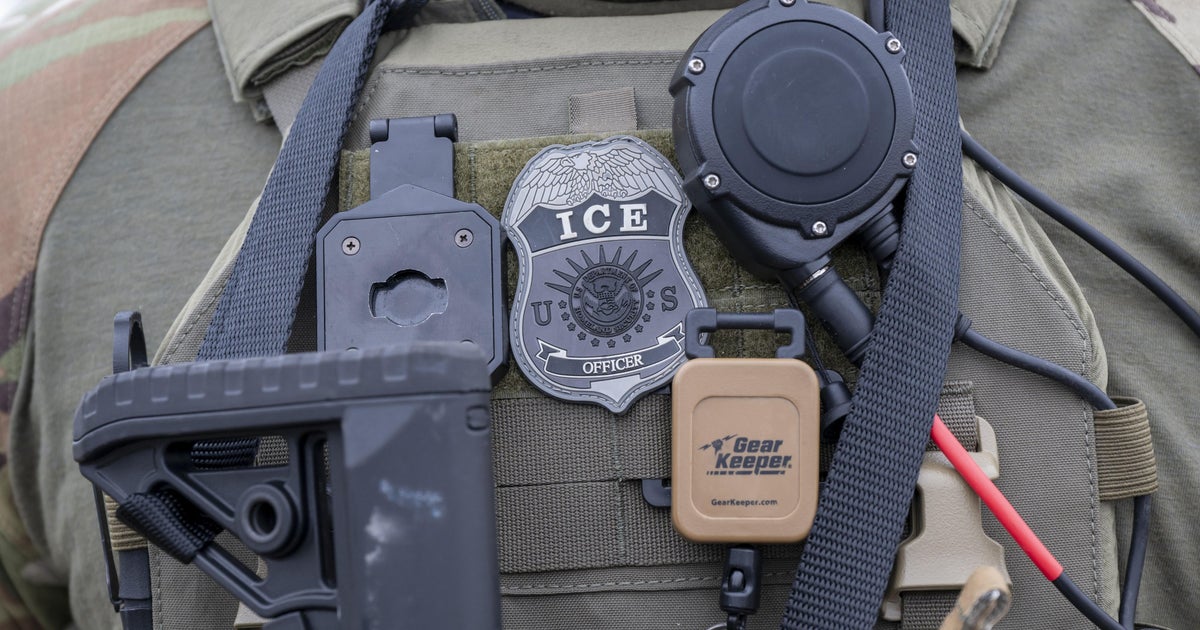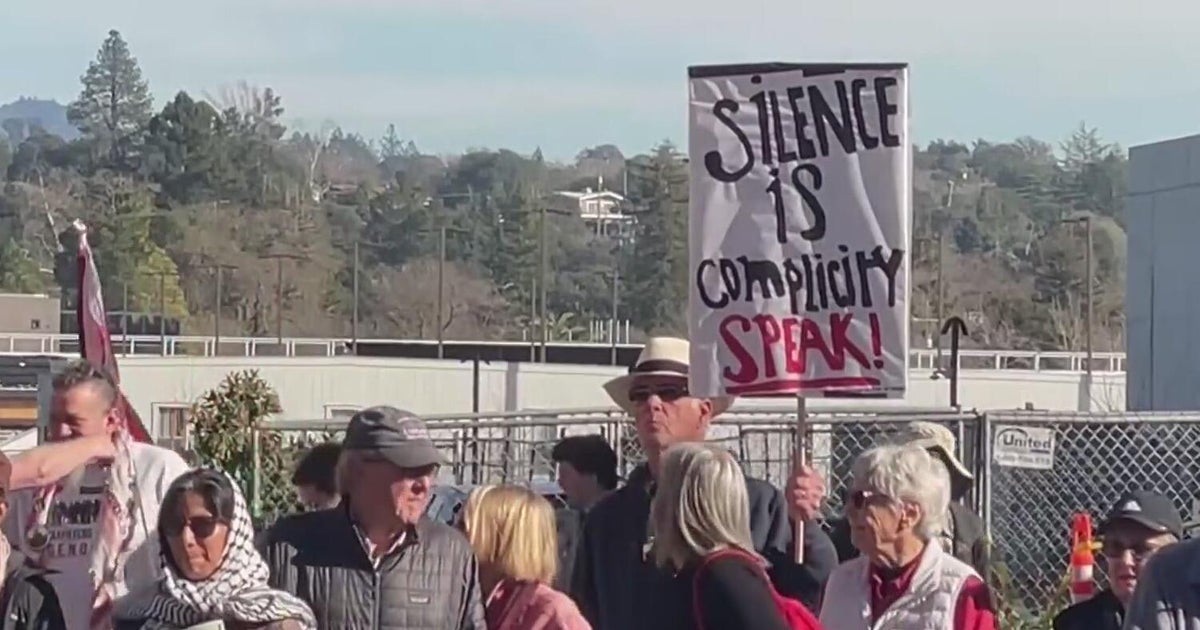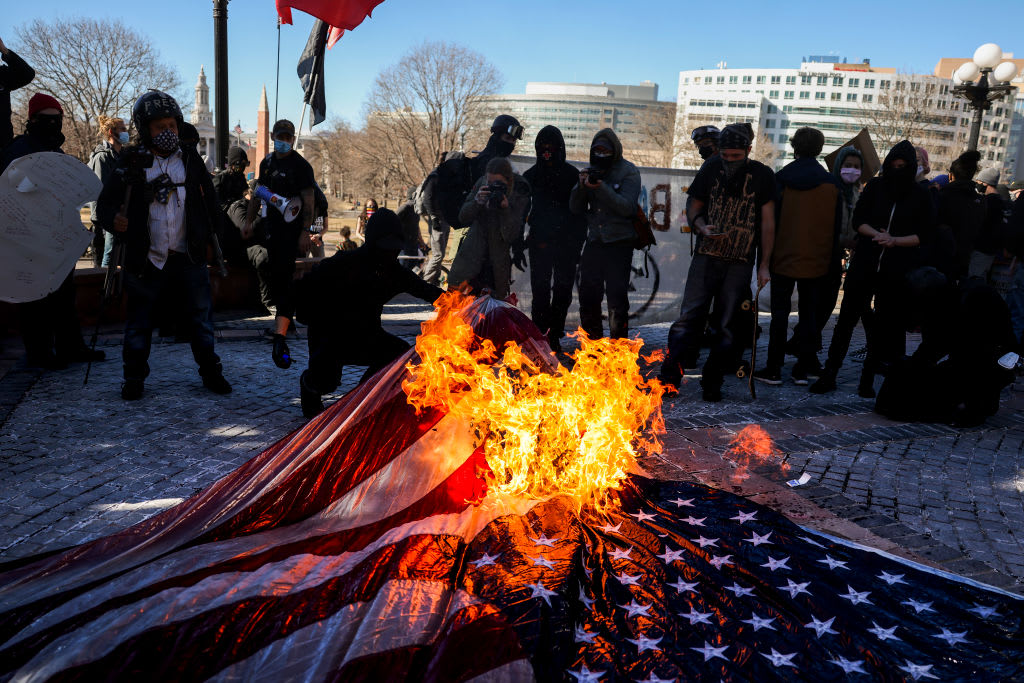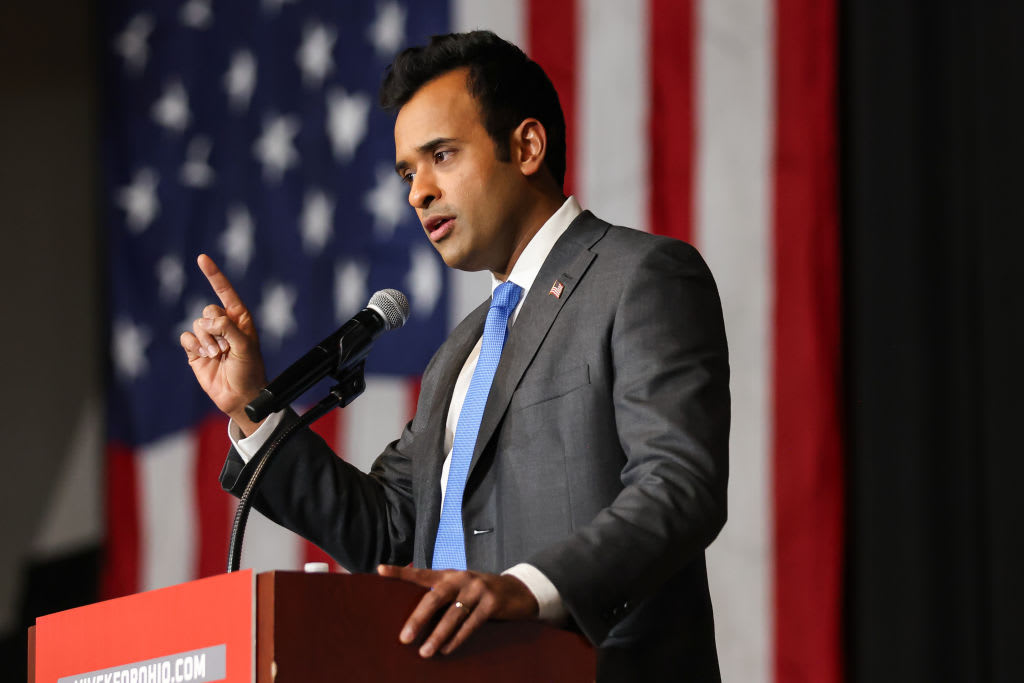Florida's "red flag" law, passed after Parkland shooting, is thwarting "bad acts," sheriff says
"Red flag" laws that allow courts to issue orders confiscating the guns of individuals who are deemed to be a risk to others or to themselves are gaining bipartisan support after two deadly mass shootings last week in Dayton, Ohio and El Paso, Texas left more than 30 people dead. President Trump this week called for a federal red flag law, and Ohio's Republican Governor Mike DeWine responded to his grieving community's call to "do something" with a package of proposed state gun legislation that includes a version of the measure.
Advocates and law enforcement officials in Florida — which enacted legislation authorizing law enforcement to seek "risk protection orders" after the February 2018 Parkland school shooting — say the red flag laws absolutely work.
"There's no doubt [risk protection orders] have an impact and have prevented people from engaging in bad acts," said Pinellas County Sheriff Bob Gualtieri.
Florida's law was passed in March 2018 after a series of reports about disturbing warning signs displayed by confessed Parkland shooter Nikolas Cruz.
Since then, state judges have signed off on 2,434 risk protection orders, according to the Florida Department of Agriculture and Consumer Services, which oversees gun licensing. Of those, 595 involved licensed gun owners, all of whom had their licenses suspended, according to department spokesman Max Flugrath. The law allows for law enforcement to petition a judge to have a person's weapons removed for 14 days, followed by a full hearing after which a judge can extend the order up to a year.
"I'd say overall we got it right — Florida got it right, the legislature got it right. It works very well. It's given us a tool that's much needed and much overdue," Gualtieri said.
Seventeen states and the District of Columbia now have some version of a red flag law on their books, in contrast to only five states had the laws before the Parkland school shooting that left 17 dead.
Those closest to people who become mass shooters often see the "red flags" before the shooting occurs. An Everytown for Gun Safety study of mass shootings from 2009 to 2017 found that in 51 percent of the incidents, the shooter exhibited warning signs that they posed a risk to themselves or others before the shooting.
In Florida, a review by the Miami New Times of 108 cases filed in Broward County found guns were ordered removed from a racist homeowner who attacked black construction workers, a man who plotted to kill his wife at Sunday church services, and a teenager who talked about how shooting people would be "fun and addicting."
In May 2018, the New Times reports, a judge ordered 67 weapons removed from the home of a Broward Sheriff's bailiff who had simulated shooting people at a courthouse, allegedly calling them "easy prey" and saying "I can take everybody out." In another case, a judge ordered weapons removed from a former Navy SEAL with a history of post-traumatic stress disorder who was accused in April 2018 of choking his pregnant girlfriend, the paper reports. In court records, a psychologist reportedly said, "There is not a more dangerous man that you would ever have to face in your life."
Gay Valimont, volunteer leader with the Florida chapter of Moms Demand Action for Gun Sense in America, told CBS News the law is able to successfully keep guns out of the hands of dangerous people.
"We truly believe it's saving lives," Valimont said.
Prior to Florida's law being passed, law enforcement had no ability to remove firearms from someone who had been ordered to undergo an involuntary mental health evaluation under the state's Baker Act — a law that requires a person to be held for 72 hours if they are determined to pose a threat to themselves or others, Gualtieri said. Now, Pinellas maintains its own unit dedicated to carrying out and enforcing the risk protection orders, with four deputies and a sergeant who work full-time with an in-house lawyer who presents the cases in court. Since the law was enacted, the department has issued 363 of the orders, 281 of which remain in effect following final rulings by a judge.
"It's huge step toward greater public safety in ensuring that people who shouldn't have firearms and shouldn't be able to purchase firearms don't do so," Gualtieri said.
Had Nikolas Cruz been reported to law enforcement with the state's current red flag law in place, Gualtieri said there's "no question" his actions and behavior would have met the criteria for a risk protection order. Gualtieri chaired the state commission that investigated the response to the shooting at Marjory Stoneman Douglas High School.
Local law enforcement and the FBI admitted they failed to follow up properly on reports that Cruz might be a potential school shooter. School officials and a sheriff's deputy had in September 2016 recommended Cruz be involuntarily committed under the state's Baker Act after he wrote the word "kill" in a notebook, told a classmate he wanted to buy a gun and use it, and cut his arm, according to the Associated Press. But the recommendation was never followed up on. Law enforcement had repeatedly been called to his home over violent behavior and he was known to have weapons.
Others also knew about Cruz's disturbing behavior but never reported it, said Gualtieri. He stressed that for a red flag law to be successful, concerned citizens need to speak up, but law enforcement also need to be properly trained to field the reports and execute the orders.
Judges have not upheld all of the risk protection orders. In some cases they agreed with lawyers who have challenged the orders, arguing the law is vague and impinges on constitutionally protected speech. The Miami New Times reports a judge threw out the case of a teen who had posted online about the Columbine shootings and said she had a dream about killing people after her lawyer argued the teen never made a specific threat and didn't have access to a gun.
Gun rights advocates say the law impinges on Second Amendment rights and lacks due process.
"The entire premise of these orders was designed as a way to get around constitutional rights to due process that have existed since this country's founding," Eric Friday, an attorney for the gun-rights group Florida Carry, told the New Times. "Every legislator that voted for it and every police department that uses it should be ashamed to call themselves an American."
Gualtieri stressed that the law allows for significant due process and is tailored specifically for people who pose an imminent threat.
The gunman who opened fire outside a Dayton, Ohio bar early Sunday, killing nine people including his sister, also showed disturbing behavior before the attack. Connor Betts, 24, was interested in "violent ideologies," according to the FBI, and high school classmates told the Associated Press he maintained a "hit list" and a "rape list" of students he wanted to kill or sexually assault.
Speaking this week, Dayton mayor Nan Whaley said she was "pleased" with DeWine's proposal for a red flag law and said she hoped Ohio would be the next state to enact it.





